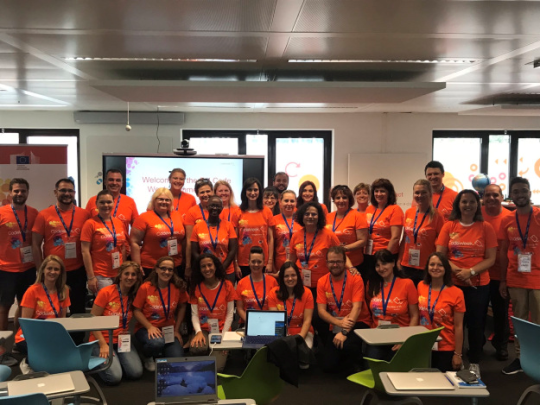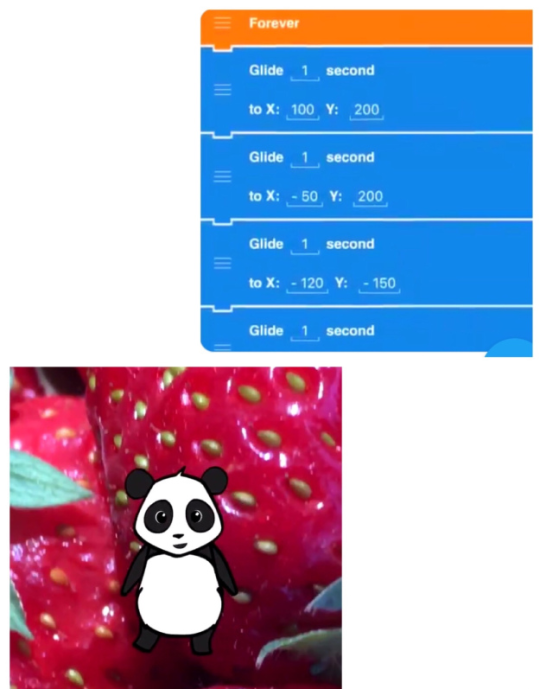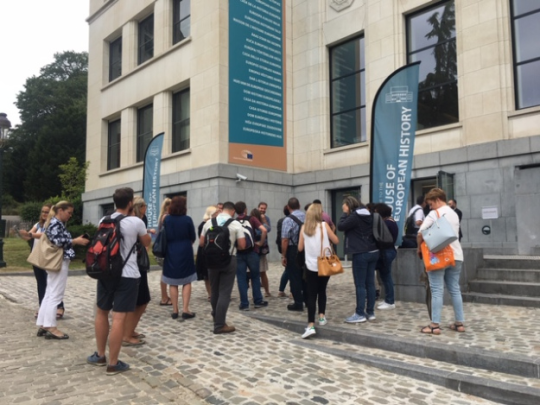Anu’s lookback on the EU Code Week Summer School
Publication date: August 30, 2019
By Anu Kahri (EU Code Week Leading teacher in Finland)
This summer, I had the great opportunity to participate in the first-ever EU Code Week Pilot Summer school in Brussels! 25 EU Code week Leading teachers from 16 different countries were welcomed on Tuesday 9 July by Commissioner Maryia Gabriel. Her goal is to get 50% of all schools in the EU area to participate in EU Code Week by 2020. That leads us straight to the Leading teachers’ goal of building a stronger network and spreading the idea that Code Week is for everybody.

On the second day of EU Code Week Pilot Summer school, we worked on parallel workshops. It was hard to choose because you only had time to participate in 2 of the 4. There were workshops on tinkering and making, robotics and makeblocks, micro:bit, visual programming and, game design. During the workshops, we talked about developing technologic and information literacy and, competencies like problem-solving, creativity and collaboration. My favourite workshop was working with Pocket Code. With Pocket Code you can create, play and share games and animations that you develop with your phone or tablet. It was super easy and fun!

In the afternoon we worked with Computer Science Fundamentals and the code.org curriculum in particular.
Day 3 of the EU Code Week Summer School focused on building a MOOC together. We started by listing advantages and finding solutions for existing challenges on the following topics:
- Visual programming
- Robotics
- Tinkering
- Unplugged activities
- Coding with all subjects
On day 3 we also got to play a royal battle on CodyColor which was introduced to us by Leading teacher Stefania Altieri. The aim of the game is to keep your robot moving on the platform as long as possible. You have a 4 X 4 grid and you can choose where your robot “walks into the grid” but after that, the moves are pre-determined by the colours in the squares. It was a super fun game that I will definitely play with my kids at school. As an unplugged activity first, so that they learn the directions and then the actual battle.
On the same day, we visited the House of European History museum. The museum aims to become the leading museum about transnational phenomena which have shaped our continent. It explores the historical memories, diverse experiences and common ground of the people in Europe and how these relate to the present. It was a very interesting and interactive guided tour via a tablet that I even got to experience in Finnish! The House of European History can be experienced in all 24 EU official languages.

On day 4 – our last day – we learned how to organize a hackathon but mainly focused on the future as we worked on our action plans for the coming EU Code Week. Many different ideas and many different ways on how to put these ideas into practice were shared. I believe it is very important to share and to create a network. We received our certificates for the good work we’d done during the week and said farewells to all our new friends near and far, knowing that the new network we created is supporting us from now on.



